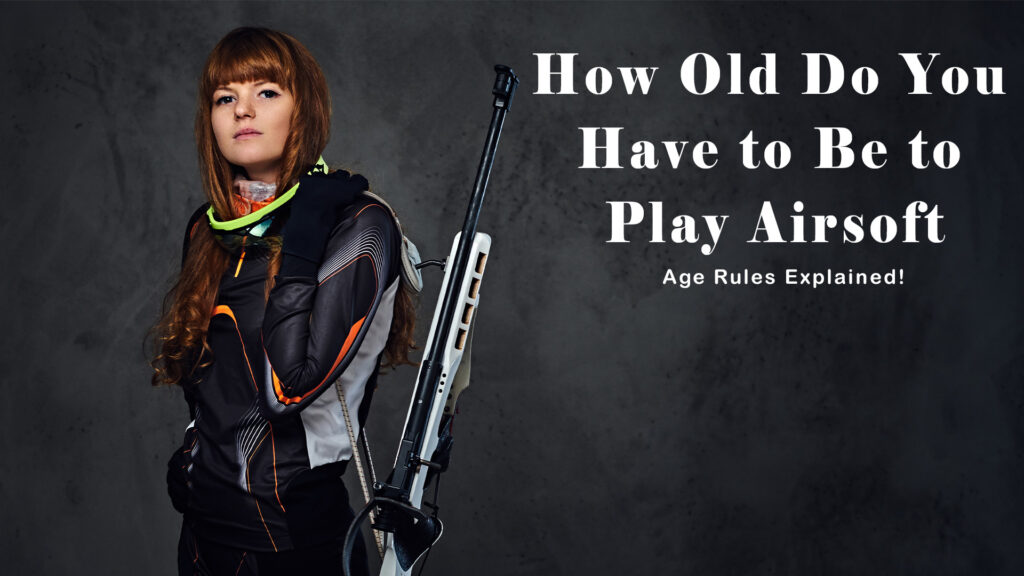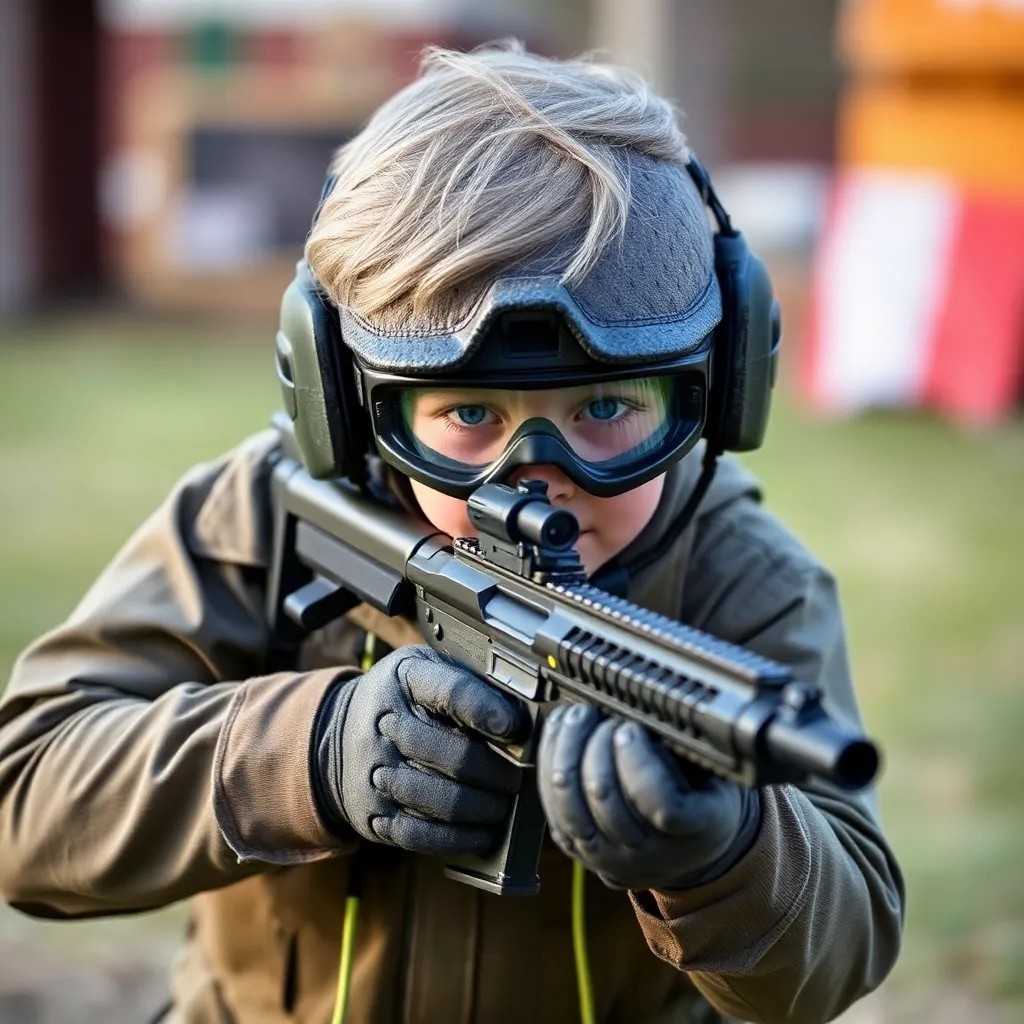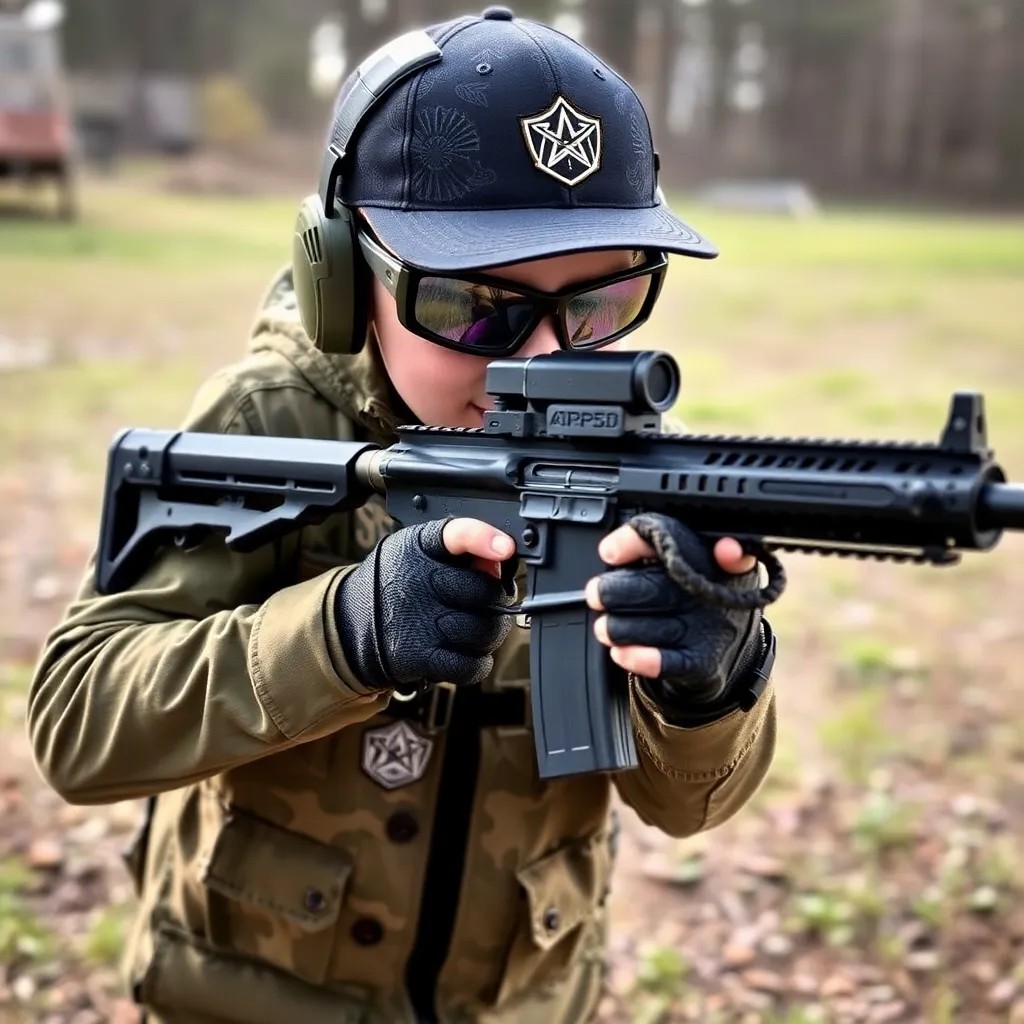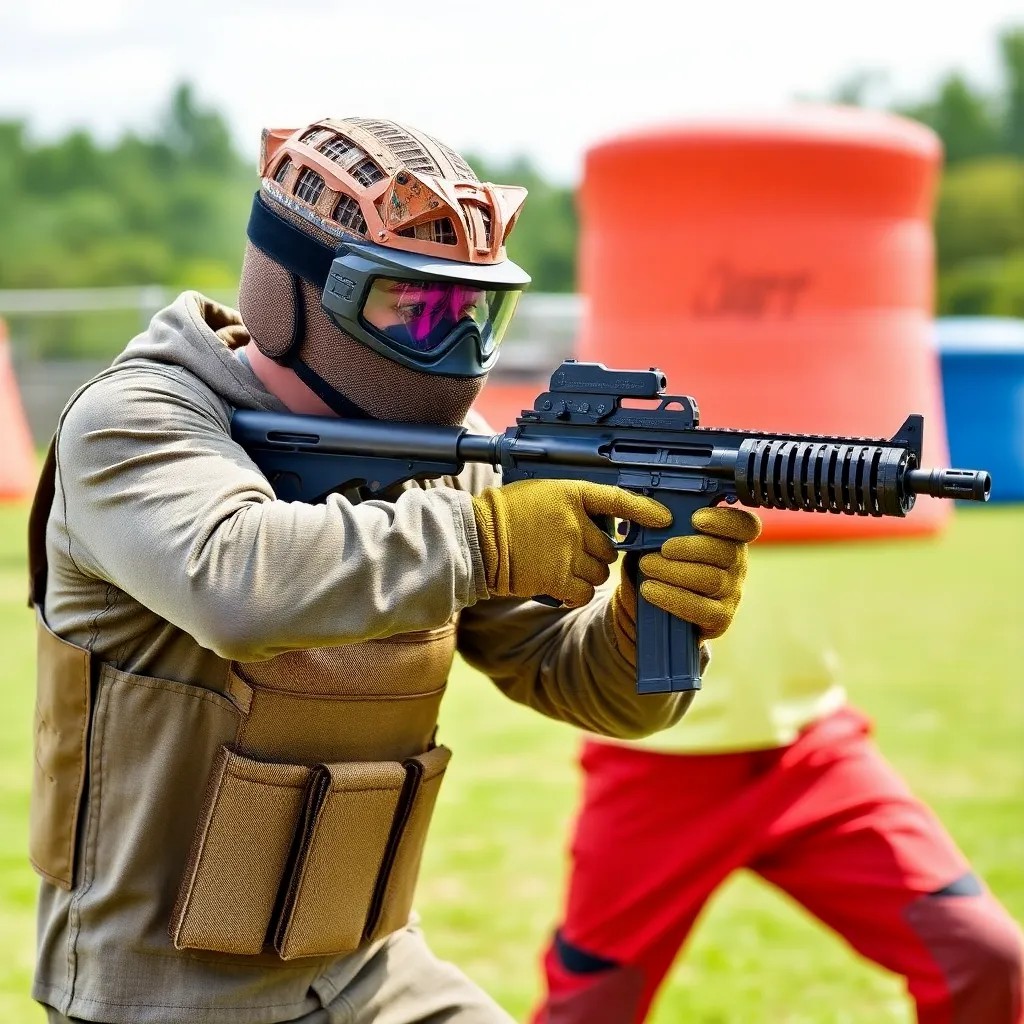Airsoft goes beyond simple fun. It’s a real-world test of speed, strategy, and sharp thinking. Players of all ages step into the action some for the thrill, others for the challenge. Whether you dash through open fields or navigate tight corners indoors, every match feels like a live mission. With realistic gear, quick moves, and smart teamwork, airsoft delivers pure adrenaline something no screen can match.
But before the action starts, rules must come first especially age limits. Teens often want to dive in. Parents want to make sure it’s safe. The rules may seem tricky, but they’re important. This guide clears the confusion. It covers age requirements, safety gear, and local laws. Whether you’re a teen, a parent, or just getting started, this article gives you the facts to join the game with confidence.
What Is Airsoft?
Airsoft is a real-world sport built on strategy, movement, and quick thinking. Players use lifelike replica guns that fire small plastic BBs. These guns look real but are safe when used in controlled settings. The goal is direct hit opponents with BBs and complete missions as a team.
Matches happen on outdoor fields or in indoor arenas. Some games recreate military scenarios. Others focus on fast, competitive team battles. Players wear safety gear like vests, helmets, and masks to stay protected and feel part of the action.
Airsoft follows an honor system. When a player gets hit, they call themselves out. Referees and players rely on honesty, which helps build trust and respect on the field.
The game attracts players of all ages. Some play for fun. Others use it for tactical training or competitive events just like how game developers simulate battles in digital environments. Learn how to make a 3rd person game in GDevelop and bring airsoft-style missions to life virtually. It builds teamwork, focus, and fast thinking.
How Old Do You Have to Be to Play Airsoft?
Age rules vary across states, countries, and individual airsoft fields. Most fields in the U.S. allow players as young as 12. Some let kids play at age 10, but only with close adult supervision.
General Age Rule
Most venues set the starting age at 12. These players can join standard matches and use entry-level airsoft gear. Fields often create special sessions or beginner games for younger teens to learn safely.
Some fields lower the limit to 10, but these younger players must have an adult present at all times. Rules may also restrict what gear they use or which matches they can join.
Parental Consent
Minors under 18 usually need a signed waiver from a parent or guardian. This confirms the parent understands the risks and rules. Some venues also ask parents to stay and watch the game.
Parents should review field rules before signing anything. They should also talk to their child about safety, gear, and fair play. Kids who play under supervision tend to follow rules better and avoid injuries.
State and Country Laws
Airsoft laws vary widely. Each region sets its own rules about who can play, where games can take place, and how airsoft guns must look. Knowing the law in your area is the first step to safe, legal play.
United States, State Differences
Airsoft is legal in most parts of the U.S., but some states add extra rules—especially for minors. Below are key examples:
California: Kids can play, but stores cannot sell airsoft guns to anyone under 18. All guns must have bright-colored tips or markings. Cities like San Francisco also limit where and how airsoft guns can be used.
Illinois: The law blocks sales to minors. Players under 18 need adult approval. Some towns add more rules through local ordinances.
New York City: Airsoft guns must be clear or have bright colors. These rules help prevent confusion with real weapons. Some areas ban airsoft completely due to strict imitation laws.
Washington D.C.: Airsoft guns follow tough imitation firearm rules. Public use is banned in many places. Carrying one in certain zones can lead to legal trouble.
Michigan: Some cities allow airsoft, but others ban public use or set curfews for minors. The state allows play, but local governments often add restrictions.
Always check local laws before buying or playing. Breaking these rules even by accident can result in fines or police action.
Airsoft Laws Outside the U.S.
Other countries take different approaches to airsoft. Some follow strict national laws. Others allow regional variation. Here’s a quick look:
- Sweden and Norway: Airsoft is legal, but only for players 18 and older. These countries treat airsoft guns as firearms or close imitations, so strict ownership and usage rules apply.
- Japan: Players must be at least 18. Guns must meet strict power limits. Police inspect many shops to ensure compliance. Japan also limits where players can use airsoft guns mostly in controlled environments.
- South Korea: Airsoft guns fall under weapons control laws. Users must register them, and only adults can own or use them. Unlicensed possession may lead to legal penalties.
- Taiwan: Players must follow set power limits and age restrictions. Public use of airsoft guns is banned. Games must take place in approved fields or private areas.
Is Airsoft Safe for Kids?
Yes, airsoft is safe with proper gear and adult supervision. The Airsoft Safety Foundation strongly recommends that all players, especially minors, wear full protective gear including eye and face protection. The BBs can sting or bruise, but they are not lethal. Eye and face injuries are the main risk. This is why safety gear is a must.
Fields often require kids under 16 to wear full-face masks. Good gear makes the game much safer.
Best Age to Start Airsoft
Experts recommend age 13 as a good time to begin. At this age, most kids follow rules and handle equipment responsibly. Some younger kids may also be ready, but only if they show maturity.
Parents should decide based on the child’s behavior and understanding of safety. Teens under 18 can play at many U.S. fields, but they cannot buy the guns themselves.
U.S. Airsoft Gun Laws
In the U.S., airsoft guns are not real firearms. They fall under “imitation firearm” rules. Federal law requires these guns to have bright orange tips to clearly mark them as imitation firearms, as outlined by the U.S. Consumer Product Safety Commission. Some states go further.
- Federal Rule: No sales of airsoft guns to minors under 18.
- State Add-Ons: Some states need adult supervision. Others limit where and how kids can use the guns.
Must-Have Airsoft Safety Gear
Safety gear is not optional it’s essential. Every player must wear the right equipment to stay protected on the field. The most important item is eye protection. Goggles or full-face masks shield the eyes and teeth from direct hits. A BB strike to the face can cause serious harm, so proper coverage is critical.
Gloves matter too. They protect the fingers from direct hits and help players hold their guns firmly. Many also wear long sleeves, full-length pants, and sturdy shoes. This gear covers the skin and helps prevent cuts and bruises during the game.
Younger players benefit from extra protection. Padded vests or body armor help absorb the impact of BBs and make the game more comfortable. Good gear keeps players safe and focused. With the right protection, the game stays fun not painful.
Why Airsoft Is Good for Kids
Airsoft is more than just a thrilling game. It offers strong benefits for kids and teens, both on and off the field. First, it provides real physical activity. Players run, duck, and move constantly. This boosts fitness and encourages a healthy lifestyle.
It also sharpens the mind. Airsoft involves quick decisions, strategic planning, and real-time problem-solving. Kids learn how to assess situations fast and make smart moves. These skills help beyond the game in school and in life.
Airsoft also teaches teamwork. Players must talk, coordinate, and support each other. Communication becomes a key to success, building strong social skills along the way. Over time, players gain confidence. Each mission they complete, each tactic they master, helps them grow. Win or lose, kids walk away stronger, sharper, and more self-assured.
Final Thoughts
Airsoft is more than a game. It brings action, challenge, and excitement in every match. It pushes players to move fast, think sharp, and act as a team. Like any sport, it comes with responsibility. Rules, gear, and maturity are not optional—they are the foundation of safe play.
Parents should think before allowing their child to join. Is the child ready to follow rules? Can they handle gear and respect others on the field? If yes, airsoft can be a strong and positive outlet.
Age limits are not the same everywhere. Most kids can start around age 12 or 13 with the right gear and supervision. Some may be ready earlier, others later. Maturity matters more than age. Always check local laws, complete any waivers, and follow field rules.
With the right steps, airsoft becomes more than weekend fun. It builds confidence, sharpens focus, and helps kids make real friendships. Get ready, stay alert, and enjoy the action safe and smart.
Airsoft FAQ:
What Parents and New Players Should Know
1. What is airsoft?
Airsoft is a team game. Players use replica guns that shoot plastic BBs. Each match has missions or team elimination.
2. Is airsoft safe for kids?
Yes. It is safe with the right gear and adult supervision. Most fields require masks to protect the eyes and face.
3. What age can kids start playing?
Most kids start at 12 or 13. Some fields allow 10-year-olds if a parent stays. Readiness depends on maturity.
4. Do kids need parent approval to play?
Yes. Players under 18 must bring a signed waiver. Some fields also ask the parent to stay during the game.
5. What gear keeps players safe?
Players must wear eye protection. Younger kids often wear full-face masks. Gloves, long sleeves, and strong shoes help prevent injury.






